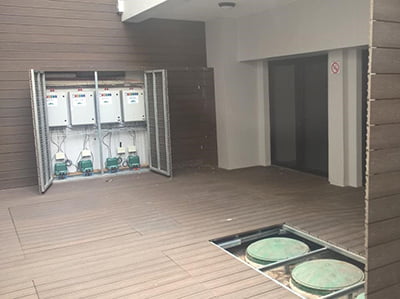IN September 2021 the City of Cape Town put a halt on all developments that would rely on the Potsdam, Zandvliet and Macassar Wastewater Treatment works due to the works being over capacitated. This was not good news for developers who stood to lose millions of Rands.
On the 22nd of July 2022, the City of Cape Town released a media statement advising that the City has developed a Standard Operating Procedure for temporary wastewater ‘packaged plants’, which would help developers to continue with developments in the aforementioned areas.
In it the City states that it is “committed to doing everything possible to enable sustainable economic growth and development, while meeting obligations that take into account the capacity of services infrastructure when applications for new developments are submitted.”
The Standard Operating Procedure outlines the actual process and emphasizes that developments can now continue if the developer installs a temporary wastewater treatment plant. In doing so, the city will waive the Development Charge for sewage AND discount the sewage charge on the utilities bill for as long as the private plant is in operation.
The Clarus Fusion manufactured by Maskam Water is not just a temporary packaged plant, but a permanent sustainable solution. More than 300 Clarus Fusions have been installed in nine African countries and it has proven to be very successful in the urban environment.
One such installation was done a mere 2m from the boardroom of the Department of Environmental Affairs and Development Planning in the heart of Cape Town CBD. No odour can be detected and the plant is running smoothly while the staff engages in their day to day duties. It is a permanent, sustainable solution built for urban use, that is saving them a million litres of water per year. The treated effluent is used for toilet flushing.
Other urban installations include the Synergy Grove Restaurant in McGregor, where patrons walk over the Clarus Fusion WWTP to visit the restrooms, Curro School Bloemfontein, Barloworld Caterpillar and American School in Maputo, all of which uses the treated effluent for irrigation. This is but to mention a few.
The Clarus Fusion can be installed underground in public open spaces so no space is lost and it has no visual effect on the development. And seeing as the system is modular, it can be expanded as you build.
By re-using the treated effluent for irrigation and/or toilet flushing, developers will also comply with the 2018 bylaws that state all new developments need to install water demand management systems or alternative water for non-drinking applications.
We hope that this trial phase will become permanent solutions, for sustainable development while not wasting precious potable water on non-potable applications.
For more information on getting the green light on your development in the affected areas, contact: Annalize Nieuwoudt, annalize@maskam.co.za, 0833055233
